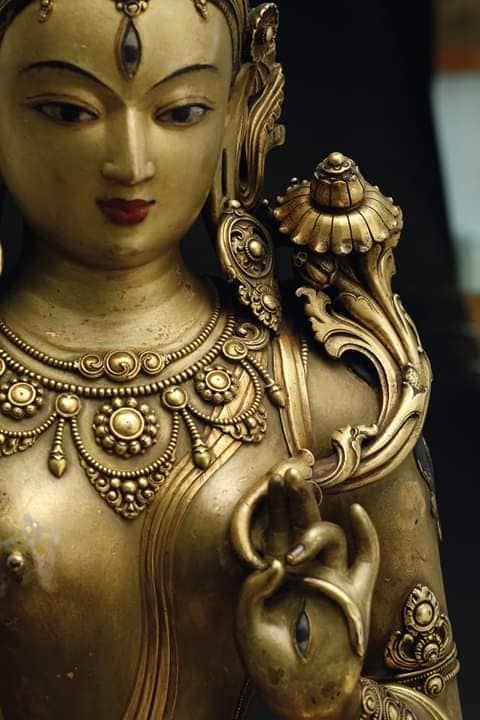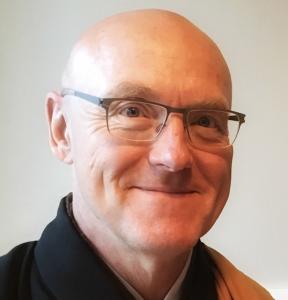Click here to support the my teaching practice via Patreon.
Your contribution will enhance my capacity to offer posts like this. Thank you!
Question
A student on the Vine of Obstacles recently asked, “Our translation of the first Great Vow is ‘The many beings are numberless, vowing to carry them across.’ The group I practiced with previously used a different translation, ‘All beings, one body, I vow to liberate.’ This has a different flavor. Specifically, I wonder about the ‘one body’ that’s referenced. Could you say something about that?” (1)
Response
衆 – many, mass, multitude
生 – life, life forms, beings
無邊 – no limit, no boundary
誓願 – vow
度 – to ferry over (as in to ford a river)
We follow our lineage ancestor Aitken Roshi’s translation of the vows, and for the first line, as you say, we have “The many beings are numberless; vowing to carry them across.” Aitken Rōshi renders 度 as “carry … across,” so along with 誓願 or “vow,” we say “vowing to carry them across.” That is, ferry beings across the flood of samsara.
You will also often see, “I vow to save them.” And although that version tends to get people’s hackles up, it is a fair translation. When translating 度 as “save,” though, it is important to keep in mind that it isn’t the Christian sense of saving that we’re talking about, i.e., saving someone from going to hell, but to save beings from the wandering-in-circles world, aka, samsara.
You’ll notice that in the seven characters of the first line of the vow there is no “I.” However, it is fair to impute an actor and so to include a pronoun. The seven characters also do not have “liberate,” (“All beings, one body, I vow to liberate”), however, “ferrying beings across the flood of samsara” certainly implies as much.
The most creative part of the translation raised in the question is the phrase 無邊 “one body,” or literally “no limit/boundary.” I suppose the thinking of the translator was “no limit” modifies “beings” in “The many beings…. Thus, if there is no boundary between beings, then we are “one body.” Fair enough.
The more common reading is to regard 無邊, “no limit/boundary.” as modifying “many” in “The many beings….” In this view, if there is no limit to the number of the many beings, then they are numberless.
This is a good example of taking an interesting alternative implication in Chinese and making it the only meaning in the English translation where we tend to choose between either modifying “beings” (as “one body” does) or modifying “many” (as most translations do with “numberless”). One way to get around the either/or response to the question about what is being modified (i.e., does “no limit/boundary” modify “many” or “beings”) is to leave it to the reader’s interpretation. Something like this, for example: “Many beings, no limits or boundaries, vowing to carry them across.” Or, as the questioner suggested in a follow-up post on the Vine, “Uncountably many limitless beings….”
And what’s even more problematic is that the “one body” translation takes a negative (無 mu/no limit/boundary) and changes it to a positive assertion – “one body.” This is a significant interpretive move and, in my opinion, a bit questionable. Dharma teachings often offer a negation without implying what we might think as the logical opposite – a positive assertion.
I hope this helps. Questions or comments are welcome.
(1) Modified for general consumption.
Dōshō Port began practicing Zen in 1977 and now co-teaches with his wife, Tetsugan Zummach Sensei, with the Vine of Obstacles: Online Support for Zen Training, an internet-based Zen community. Dōshō received dharma transmission from Dainin Katagiri Rōshi and inka shōmei from James Myōun Ford Rōshi in the Harada-Yasutani lineage. Dōshō’s translation and commentary on The Record of Empty Hall: One Hundred Classic Koans, is now available (Shambhala). He is also the author of Keep Me In Your Heart a While: The Haunting Zen of Dainin Katagiri. Click here to support the teaching practice of Dōshō Rōshi.














